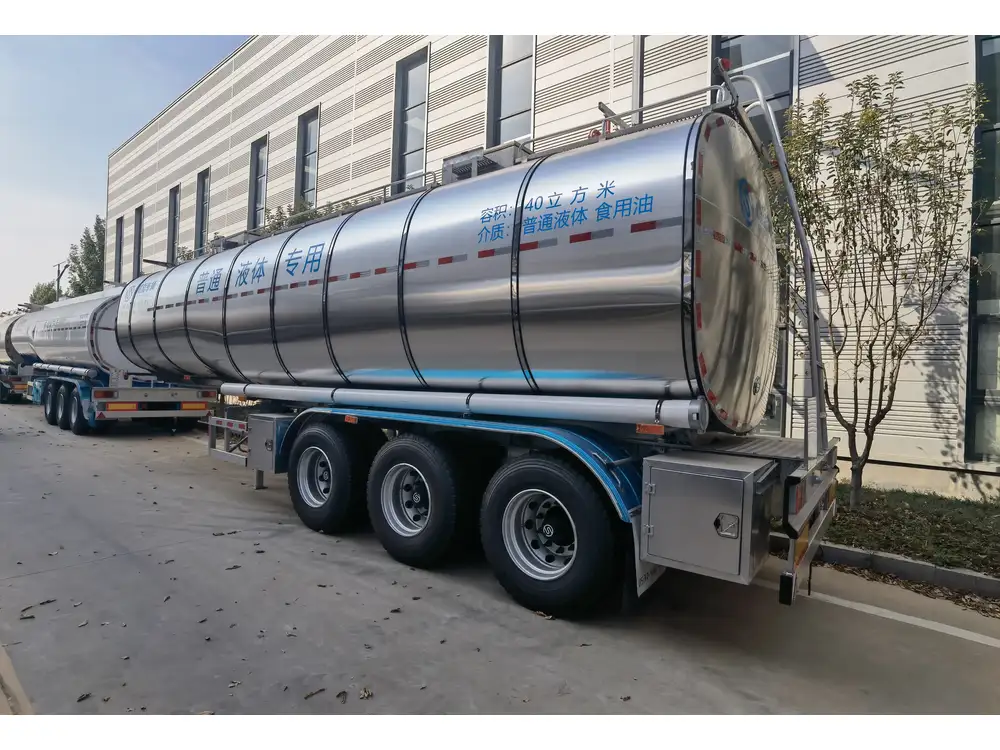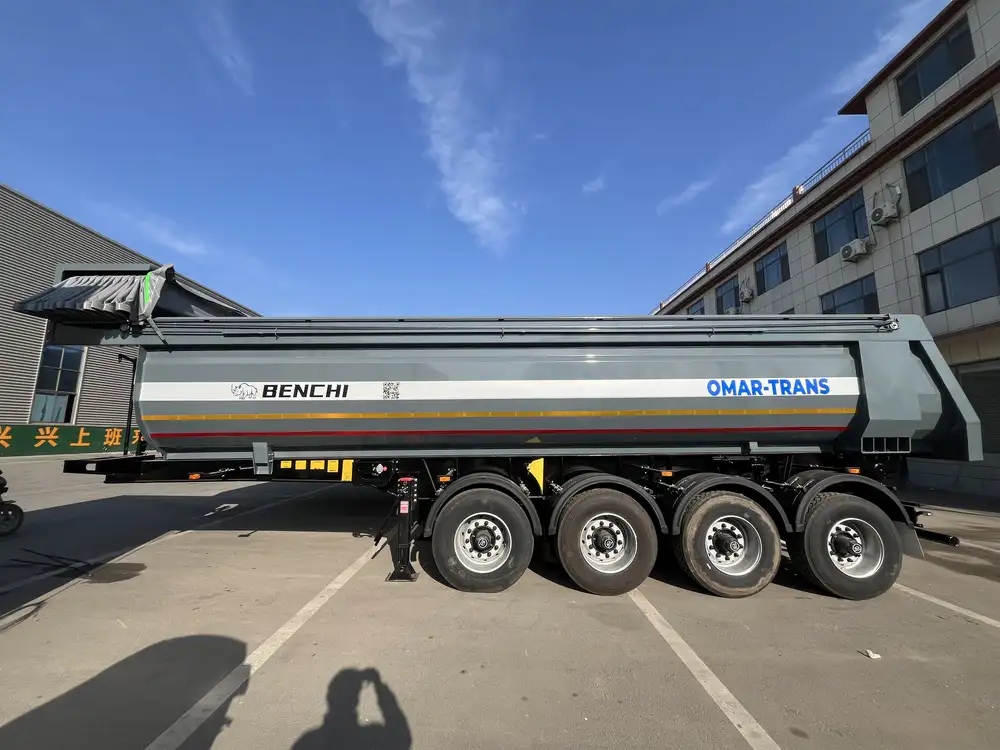Understanding Skeletal Trailer Chassis
Skeletal trailers, characterized by their lightweight structure designed to accommodate shipping containers, have become indispensable in today’s logistics and transportation sectors. Specifically engineered to provide a high degree of flexibility and efficiency, skeletal trailer chassis serve as the backbone of intermodal transport systems, allowing for the seamless movement of goods across various modes of transport—road, rail, and sea.
Key Features of Skeletal Trailer Chassis
| Feature | Description |
|---|---|
| Materials | Typically constructed from high-strength steel or aluminum alloys to balance durability and weight. |
| Modular Design | Enables easy customization and adaptability to various container sizes and types. |
| Lightweight Construction | Designed to minimize overall weight to maximize payload capacity while improving fuel efficiency. |
| Container Locks | Fitted with multiple locking mechanisms to secure containers firmly during transit. |
| Versatility | Capable of transporting standard shipping containers, reefers, or flat racks depending on configuration. |

Advantages of Utilizing Skeletal Trailer Chassis
Investing in skeletal trailer chassis not only enhances operational efficiency but also provides several competitive advantages in the logistics realm.
1. Enhanced Payload Capacity
Due to their lightweight nature, skeletal trailers allow carriers to transport more cargo within legal weight limits. This results in improved profit margins per trip.
2. Versatility in Container Handling
The design permits the use of a range of container sizes—from 20ft to 40ft and beyond—allowing businesses to adapt to diverse shipping needs without the necessity for tailored equipment.

3. Increased Fuel Efficiency
Lightweight trailers reduce the fuel consumption per mile, directly affecting operational costs and promoting sustainable transportation practices.
4. Streamlined Intermodal Transport
The ability to easily transfer containers between ships, trucks, and trains without unloading cargo results in significant time and cost savings, optimizing the entire supply chain.
5. Ease of Maintenance
Many skeletal trailers are constructed with readily available components that simplify maintenance procedures. This accessibility can significantly reduce downtime over the lifespan of the trailer.

Key Applications of Skeletal Trailer Chassis
Skeletal trailers find applications in a variety of sectors, bringing distinct benefits tailored to specific operational needs.
Logistics and Supply Chain Management
In logistics, skeletal chassis are essential for the quick changing and efficient transport of containers. They facilitate:
Intermodal Transport Networks: Ideal for services that require container transfer between various transportation modes without unloading.
Last-Mile Delivery: Companies specializing in last-mile solutions utilize these trailers to optimize the delivery of goods from distribution centers to retail outlets, thereby increasing service speed.
International Shipping
With global trade continuously expanding, skeletal trailers are pivotal. Their compatibility with shipping containers ensures:
Cross-Border Transportation: Facilitation of multinational shipping efforts, adhering to international standards in container specifications.
Efficient Port Operations: Streamlined loading and unloading processes at ports to minimize delays, improving overall shipping turnaround times.

Construction and Industrial Applications
Skeletal trailers serve industries dealing with heavy machinery and bulk materials:
Transporting Heavy Equipment: Their robust construction enables the safe transportation of heavy machinery and industrial containers.
Construction Materials Delivery: Used for transporting prefabricated materials to construction sites, enhancing workflow efficiency on-site.
Considerations When Selecting a Skeletal Trailer Chassis
When considering a skeletal trailer chassis, manufacturers and operators should evaluate several critical factors:
1. Weight Capacity
Understanding the maximum weight capacity is essential. It’s crucial to select a skeletal chassis suitable for the anticipated cargo loads to ensure safety and compliance.

2. Container Compatibility
Different trailers may have unique designs that accommodate specific container types. Assessing compatibility will help streamline logistics.
3. Durability and Maintenance Intervals
Ensuring the chassis material can endure the expected operational stresses, and having a clear maintenance schedule will help preserve the trailer’s longevity.
4. Customization Options
The ability to modify or adapt the skeletal trailer for various applications can provide businesses with additional utility and competitiveness.

5. Compliance with Regulations
Ensuring that the selected chassis meets local, national, and international regulatory standards is vital to avoid fines and promote safe operations.
The Future of Skeletal Trailer Chassis: Innovations and Trends
As the logistics industry adapts to changing technologies and market demands, skeletal trailers are also evolving. Emerging innovations are poised to redefine trailer functionality, efficiency, and user convenience.
Advanced Materials
The use of composite materials and lightweight alloys is gaining traction, potentially offering trailers that are even lighter while maintaining structural integrity.

Smart Trailers
The incorporation of IoT (Internet of Things) technology in skeletal trailers enables real-time tracking of cargo, temperature control monitoring (for reefers), and predictive maintenance alerts.
Enhanced Aerodynamics
Innovative design techniques aimed at improving aerodynamics could lead to reduced drag and enhanced fuel efficiency, making skeletal trailers even more cost-effective.
Automation and Robotics
Autonomous driving technologies could eventually lead to the development of driverless skeletal trailers, addressing labor shortages and optimizing route planning and fuel efficiency.

Conclusion
Skeletal trailer chassis have solidified their position as a foundational element of the logistics and transportation industries. Their unique characteristics provide significant advantages, from enhanced payload capacity and fuel efficiency to versatile applications across various sectors. Understanding the inherent features, benefits, and considerations when investing in skeletal trailers can empower businesses to make informed decisions that align with their operational goals. Furthermore, with the imminent technological advancements on the horizon, the skeletal trailer chassis will continue evolving, ensuring they meet the demands of an ever-changing market.
By choosing the right skeletal trailer chassis, businesses can drive efficiency, reduce costs, and optimize their supply chain logistics — positioning themselves for success in an increasingly competitive landscape.



